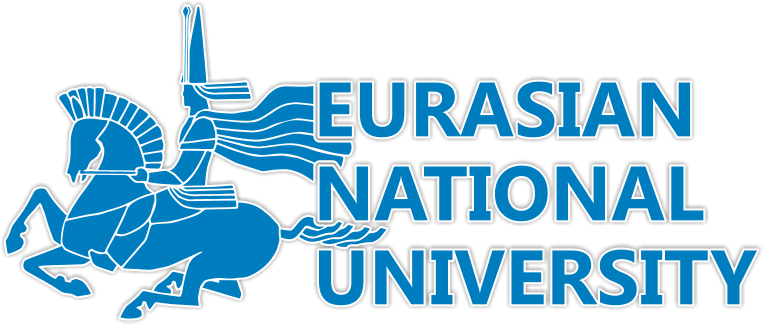EMPLOYED
In general, the employment rate of graduates of the Department of "Management and Engineering in the field of environmental protection" for 2020 was 90%, at the bachelor's level 88%, master's 95%, doctoral 100%.
Department graduates workas ecologists by industry, environmental technicians, environmental inspectors, environmental engineers, instructors in recreation and tourism, environmental education technicians and environmental experts.
EMPLOYED OF GRADUATES 2020
|
Faculty / Specialty
|
Graduation 2020 (agreement + grant |
Employed (contract + grant) |
% Of Employed (contract + grant) |
Employed by specialty (grant) |
% by specialty (grant) |
|
Environmental management and engineering |
85 |
77 |
90% |
66 |
78% |
|
Ecology 5B060800 |
56 |
49 |
88% |
42 |
75% |
|
Ecology 6D060800 |
7 |
7 |
100% |
7 |
100% |
|
Ecology 6M060800 |
22 |
21 |
95% |
17 |
77% |
|
Faculty / Specialty |
Graduation 2021 (agreement + grant |
Employed (contract + grant) |
% Employed (contract + grant) |
Issue (grant) |
Employed (grant) |
% Employed (grant) |
Employed in the specialty (grant) |
% by specialty (grant) |
|
Environmental management and engineering |
95 |
88 |
93% |
94 |
87 |
93% |
59 |
63% |
|
Ecology 5B060800 |
39 |
36 |
92% |
39 |
36 |
92% |
27 |
69% |
|
Environmental protection technology M087 |
50 |
46 |
92% |
49 |
45 |
92% |
26 |
53% |
|
Environmental protection technology 8D05208 |
6 |
6 |
100% |
6 |
6 |
100% |
6 |
100% |
EMPLOYED OF GRADUATES 2022
|
Faculty / Specialty |
Graduation 2021 (agreement + grant |
Employed (contract + grant) |
% Employed (contract + grant) |
Issue (grant) |
Employed (grant) |
% Employed (grant)) |
Employed in the specialty (grant) |
% by specialty (grant) |
|
Environmental management and engineering |
124 |
117 |
94% |
124 |
117 |
94% |
83 |
67% |
|
Environmental protection technology D087 |
10 |
10 |
100% |
10 |
10 |
100% |
10 |
100% |
|
Environmental protection technology M087 |
31 |
30 |
97% |
31 |
30 |
97% |
21 |
68% |
|
Ecology 5B060800 |
83 |
77 |
93% |
83 |
77 |
93% |
52 |
63% |
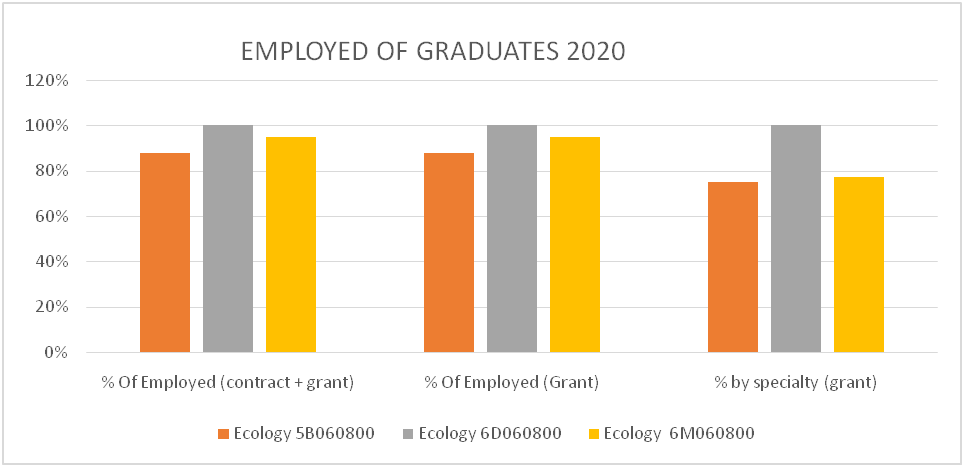
PRACTICE
EDUCATIONAL PRACTICE
The training and familiarization practice (2 semester, 4 credits) was conducted with the 1st year students of the group (Eg-11.12) on the territory of the Karkaraly SNPP. The educational practice was held according to the curriculum for the students of the first year of the specialty "5B060800-Ecology" of the department "Management and engineering in the field of environmental protection". The training practice was agreed with the work plan of the Karkaraly SNPP.
On 30.05.2017 an installation conference was held, at which all organizational issues of practice were discussed and safety training was conducted.
The purpose of the practice was to consolidate and deepen theoretical training and acquire practical skills and competences in the field of environmental studies
Objectives of practice:
- consolidation of theoretical knowledge obtained in the study of basic disciplines;
- mastering techniques, methods and methods for identifying, monitoring, measuring, monitoring and analyzing the ecological state of the environment;
- Obtaining practical skills in future professional activities.
The training and familiarization practice was carried out in the form of real field ecological routes, laboratory analytical studies of samples taken in the routes, analysis of the results obtained, and preparation of conclusions on the ecological state of the environment. Field work was carried out on the territory of the national park.
To achieve the goal and solve the tasks of the training practice, the students were given the following tasks according to the work plan:
1. Arrival at the place of conducting the training practice ("SNNP Қarқaraly"). Carry out a safety briefing.
2. Explore unique natural complexes, get acquainted with biodiversity, give an overall assessment of the state of ecosystems
3. To assess the state of the environment for the investigated objects (On the territory of the "SNPP Kar'araly" near the lake Shaitankol, Three Peshcheri, Lake Pool, Nature Museum).
4. Selection of plants and invertebrates with subsequent registration of collections of herbarium and dry preparations.
5. Collect materials, prepare a report on practice.
6. Submission of documentation on training practice

As a result of the practice, the students studied the methods of sampling, preparing them for research and performing analytical work. Conducting an introductory briefing on safety precautions when moving through the forest, selecting soil, water samples and working in chemical laboratories.
At the end of the practice, the final conference was held, at which students' reports were protected.


PRODUCTION PRACTICE 2023
 |
|
 |
Industrial practice of 2-4th-year students studying in the specialty "5B060800-Ecology" is an integral part of the training of highly qualified specialists and is organized according to the curriculum. Industrial practice is a practical part of the educational process of training qualified workers and specialists, which takes place, as a rule, at various enterprises in real production conditions. It is the final part of the training practice that takes place in an educational institution. During the production practice, the results of theoretical training and practical training are consolidated and concretized, students acquire the skills and skills of practical work on the assigned qualification and the chosen specialty or profession.
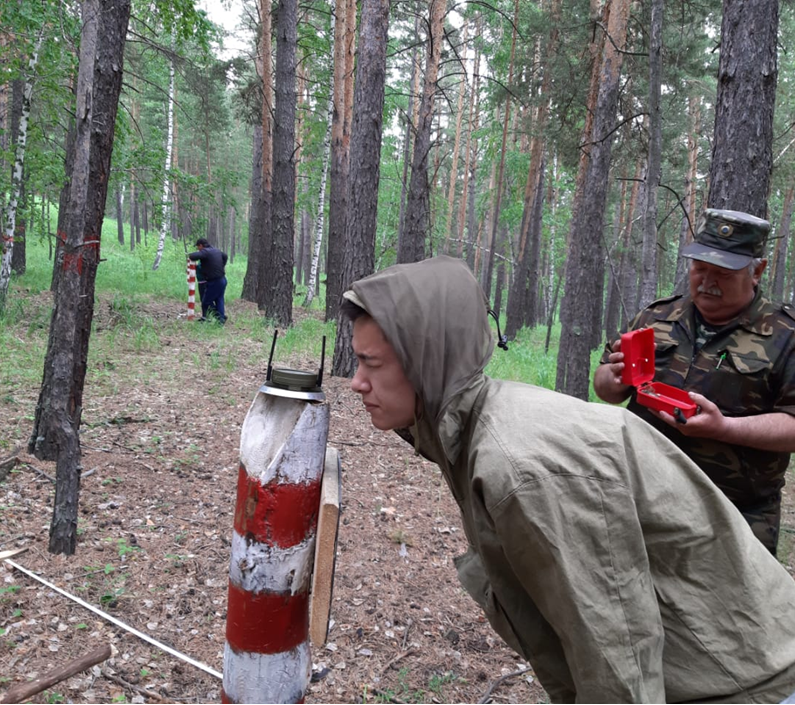
The basis of professional practice for 2nd year students is: GNPP "Burabay", Karkaraly GNPP, GNPP"Altyn-Emel".
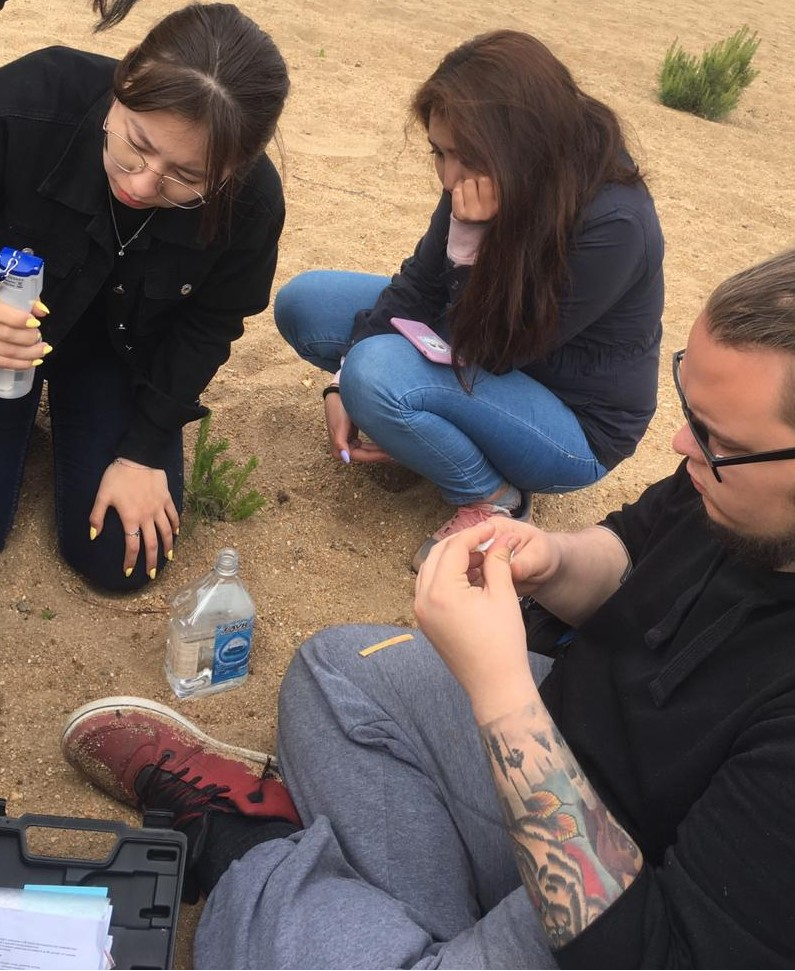
In the 3rd and 4th years, students can take industrial practice:
- Ministry of Agriculture of the Republic of Kazakhstan
- Ministry of Energy of the Republic of Kazakhstan
- Ministry of Ecology-Geology and Natural Resources of the Republic of Kazakhstan
- Agency of the Republic of Kazakhstan for Land Management
- Agency of the Republic of Kazakhstan for Water Resources Management
- in the regional environmental protection committees of regional akimats;
- in research organizations, institutes, analytical and information centers;
- RSE " Kazhydromet»;
-RSE "Information and Analytical Center";
- State Institution " Department of Natural Resources and Environmental Management of Astana";
- in the departments of ecology and environmental management of large companies, enterprises: JSC NC "KazMunayGas", JSC "KazTransOil", etc.
- The Botanical Garden of Nur-Sultan.
- Project organizations.
- SES.
TEACHING PRACTICE
Pedagogical practice is also an integral part of the educational process, providing a combination of theoretical training of students with their practical activities. This allows you to apply the acquired knowledge and skills in practice and serves as one of the effective means of successful preparation of students for future professional activities. Pedagogical practice forms students ' professional and pedagogical skills and skills of independent conduct of educational work with students of secondary general education institutions. Pedagogical practice allows students to finally make sure that the choice of their future profession is correct.
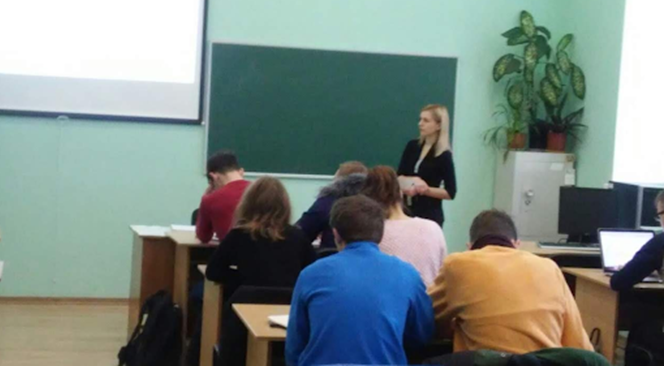
Goals:
* familiarity with the specific conditions of professional teaching activities;
* consolidation of the acquired theoretical knowledge in general professional and special disciplines;
* mastering the necessary methods, skills and abilities in the chosen specialty.
Tasks:
* students-trainees study teaching methods and pedagogical experience of teachers of faculty departments;
* conducting various types of classes using the developed pedagogical methods and techniques;
* development of communication skills;
* development of student-trainees ' interest in research work in the field of teaching methods of the subject.
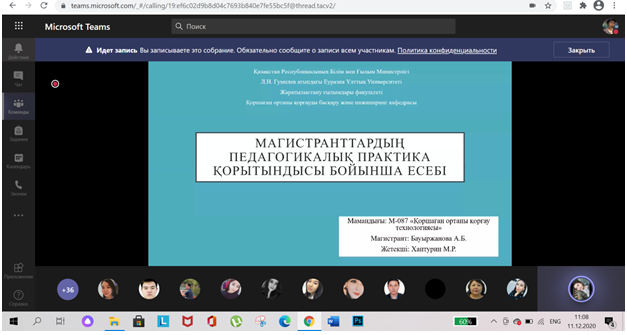
RESEARCH PRACTICE
Research practice is a type of industrial practice. The results of this practice can be used in the continuation of research activities, in particular when writing a master's thesis.
1. The objectives of the research practice are:
* consolidation of theoretical knowledge gained in the study of natural science and professional disciplines;;
* acquisition of experience in practical research work, including in a team of researchers;
* acquisition of practical skills and competencies in the field of professional research activities
2. The objectives of the research practice are:
* Mastering the methodology of organizing and conducting research work in research laboratories of universities, organizations and enterprises.
* Mastering modern research methods, including instrumental ones.
* Search, processing, analysis and systematization of scientific and technical information on the research topic, selection of methods and means for solving the problem.
Pre-graduate practice
Installation conference for 4th year students, 2021
Report of educational practice Bachelor's degree 2023
FINAL CONFERENCE ON THE RESEARCH PRACTICE OF THE 4TH YEAR BACHELOR, 2022
FINAL CONFERENCE OF 2ND YEAR MASTER STUDENTS IN RESEARCH PRACTICE, 2022
FINAL CONFERENCE ON RESEARCH PRACTICE OF 2ND YEAR DOCTORAL STUDENTS, 2022
PERSONAL PLACEMENT OF GRADUATES OF THE FACULTY OF NATURAL SCIENCES - 2020
"JOB FAIR-2020" OF THE FACULTY OF NATURAL SCIENCES
Information and explanatory work on the procedure for working out grants for graduates in 2021
Information and explanatory work on the procedure for working out grants for graduates in 2020
Agreements and memoranda on practice
